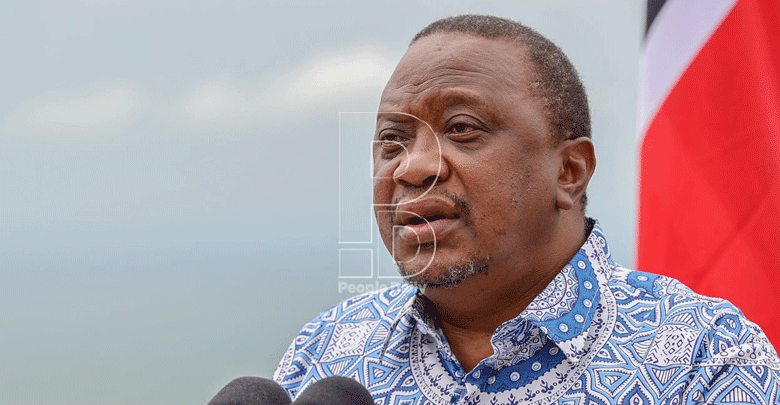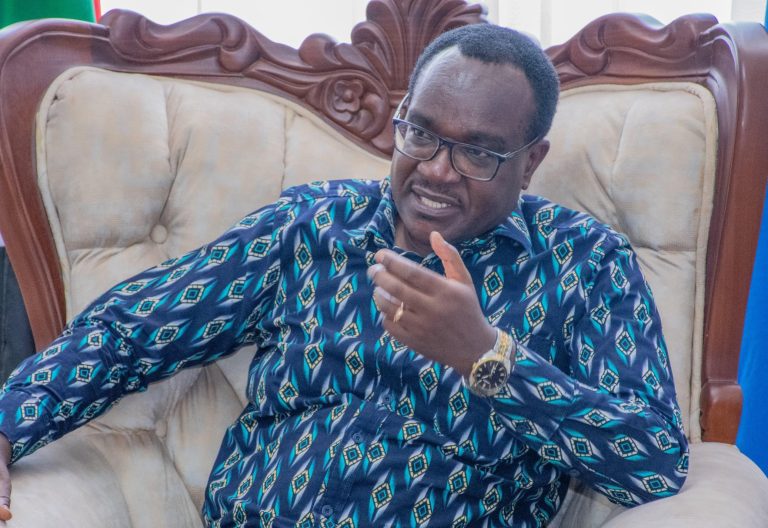Lockdown looms in Nairobi, four more counties

The government is mulling imposing tougher Covid-19 containment measures, including restricting movement in and out of five counties where spread of the virus is considered to be getting out of hand.
Sources within government disclosed that President Uhuru Kenyatta is likely to impose a month-long movement restrictions in Nairobi, Kiambu, Nakuru, Kajiado and Machakos counties.
The National Emergency Response Committee (NERC) on Coronavirus is said to regard locking down the five counties as one of the “serious considerations” to reduce further spread of the virus.
Sources said the growing alarm over the rapid spread of the new, more infectious Covid variant has put the government under pressure to introduce harsher restrictions in Nairobi and the other four counties.
However, the National Treasury and the Kenya Private Sector Alliance (Kepsa) have put up a spirited fight against a partial lockdown in the affected counties, with the former said to have written to the President warning of “massive negative impact on the already struggling economy”.
Also, there are fears among Kenyans that any lockdown would likely interfere with travel plans by thousands of families planning to go upcountry and to other destinations for the long Easter holiday which starts next week.
Calls for imposition of a lockdown come in the wake of confirmation from the government that all hospitals in Nairobi, except Kenyatta National Hospital, are now demanding a deposit of Sh200,000 to Sh650,000 for admission into their Intensive Care Units (ICU).
According to the Kenya Medical Practitioners and Dentists Council (KMPDC) chief executive Daniel Yumbya, all the combined 206 ICU beds in the city are full.
The 23 beds that had been available at Nairobi West Hospital by Wednesday midday had been filled by yesterday morning.
“The Council’s position, however, remains that no person should be denied emergency medical treatment/ICU regardless of their condition, whether Covid-19 related or not,” Yumbya warns in his letter on the status of ICU beds in Nairobi County.
Rising fatalities
KNH has the highest number of ICU beds at 86; followed by Nairobi West 46, Nairobi Hospital 36, Kenyatta University Teaching, Referral and Research Hospital (KUTRRH) 32, and MP Shah 6.
Yumbya did no give reasons why he omitted Aga Khan University Hospital from the list.
And with fears about spread of new variants of the virus, the one first detected in the United Kingdom and another identified in South Africa, and daily cases now regularly topping 1,000, sources say President Kenyatta is exploring several options to contain the situation.
As part of the government’s determination to contain rising fatalities, the government yesterday added persons aged 58 years and above to the list of priority targets for vaccination.
“According to our data, these are at most risk of severe disease and account for 60 per cent of our recorded deaths,” Dr Willis Akhwale, the chairman of the Covid-19 Vaccine Deployment Taskforce announced in a statement.
Sources at State House disclosed that other options being considered include revising the national curfew hours to start from 9pm to 4am, restricting the number of people working in government offices at any given time, closure of bars, restaurants and entertainment joints by 8pm and strict enforcement of health guidelines in the transport sector.
Sources intimated to People Daily that NERC in its Wednesday meeting took exception with the impunity in the public transport sector where almost all stipulated Covid-19 regulations are trampled upon.
Additional stringent measures
Public Service Vehicles (PSVs) are required to carry half the number of passengers they are allowed in normal times to allow social distancing.
Kenya has for the last four consecutive days been recording a positivity rate of between 16 and 22 per cent and daily deaths of between 12 and 18, raising fears among medics that the virus could be transmitting communally.
Contacted yesterday, Prof Omu Anzala, a microbiologist and a member of NERC, said he would not be surprised if the President decided to make the containment measures tougher.
“I have always said we will continue to look at the latest evidence and data on which to base our decisions on.
At the moment, both the evidence and data are showing that we are not moving in the right direction,” Prof Anzala said.
Joining the list of individuals and institutions calling for immediate action to protect Kenyans is KEPSA, which, in a statement, called on the government to act fast.
“In this same spirit of cooperation with government, and due to the urgent need to reverse this worrying upward trajectory in new Covid-19 cases, we are asking the government to institute additional stringent measures to be implemented over the next 2-3 weeks, after which they can be reviewed for impact,” KEPSA stated in a statement.
But sources also indicated that KEPSA and the National Treasury had joined hands to caution the government against instituting measures detrimental to the economy which is reeling from effects of last year’s partial lock down.
Finance Cabinet Secretary Ukur Yatani is said to have cited the Sh71.5 billion the Kenya Revenue Authority (KRA) lost in the first five months last year when the government put in place measures to contain the virus.
KRA managed to collect Sh575.9 billion from taxpayers, an 11 per cent drop compared to Sh647.4 billion the previous year.










